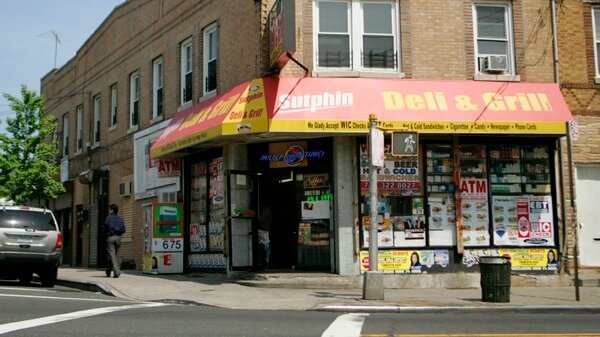By Carlotta Mohamed
When customers walk into a corner store, commonly known as a bodega in New York City, they may not know where to look to find healthy food and snacks that are scattered among unhealthy options for purchase.
A new study released last week from Public Health Solutions, the largest public health non-profit serving New York City, illustrates the positive impact of increasing healthy food options and visibility in corner bodegas in Jamaica.
Public Health Solutions’ Queens Neighborhoods Street Mapping Project conducted with funding from the Healthy Food Financing Initiative, is a follow-up to a previous report released in April 2018highlighting the prevalence of “food swamps,” or areas where unhealthy food outlets outnumber healthy alternatives in Queens. Researchers conducted an intervention to support healthy changes in product availability, placement, and promotion of healthy foods at participating stores, where 63 percent reported that they are stocking more healthy food options.
“After our first report revealed a prevalence of fast food restaurants and bodegas in Queens neighborhoods, we knew we needed to test interventions aimed at shrinking the massive gap in access to healthier foods,” said Lisa David, president and CEO of Public Health Solutions. “Through our work in underserved communities, we’ve seen that increasing access to more nutritious food options for children can have immense impacts on their development and reduce their health risks as adults. It was encouraging that our low-cost interventions made tangible differences for community members and corner store owners.”
According to PHS, bodegas are ubiquitous throughout the city but often have less space to stock healthier, perishable items compared with traditional grocery stores. This renders them sources of unhealthy options, empty calories, and contributors to significant health disparities.
The researchers in the study took a two-pronged approach by first collecting data on healthy food product availability, marketing, and placement in 139 Jamaica corner stores and then selecting nine stores in which to test interventions to encourage healthy food purchases.
In their initial analysis, of the 139 corner stores studied, over half stocked at least one type of fresh fruit or vegetable, but canned vegetables were more common. Only 26 percent displayed fresh fruits or vegetables that were visible within five seconds of entering the store. The deli counter presented the biggest challenge for finding healthy options.
For example, whole wheat bread for sandwiches was promoted at fewer than 20 percent of corner store delis.
To assist target stores, PHS offered signage, merchandisers, food preparation equipment, technical assistance, and education about sourcing healthier items. The PHS team presented owners and managers with a “menu of services,” including countertop display baskets; flat display baskets; and large freestanding, three-tiered floor baskets.
After implementing the intervention in selected stores, the report found that more than half reported increased fruit sales — 63 percent of stores reported stocking more healthy foods, one quarter of stores reported increased sales of vegetables and healthy deli combos, and eight of nine stores reported that aggregating healthy options in prominent displays, as opposed to scattered throughout the store, improved the store’s appearance.
PHS suggested that aggregating and placing healthy foods toward the front of stores and at point of purchase is a best practice, and store owners should ensure availability of Arabic-language materials and resources to prevent language and cultural barriers among potential business partners.
Reach reporter Carlotta Mohamed by e-mail at cmoha



































